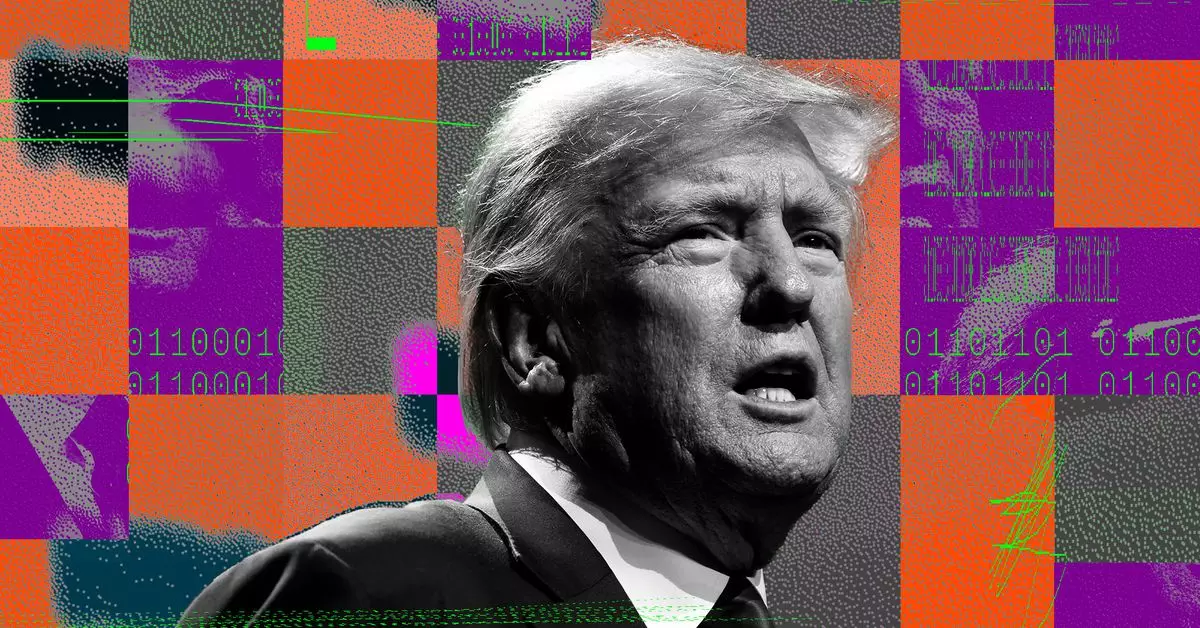The ongoing debate surrounding TikTok has taken a new twist as former President Donald Trump positions himself at the forefront of what he claims to be a political resolution to the potential ban of the platform in the United States. Asserting that his negotiation skills could lead to a favorable outcome for both TikTok and American users, Trump’s latest move involves appealing to the Supreme Court for a pause on a critical legislative deadline related to the app. This article dissects the implications of his actions, the intertwining of politics with digital platforms, and what this could mean for free speech in America.
The Challenge of National Security and Free Speech
The U.S. government’s concerns about TikTok stem from allegations regarding national security risks associated with its Chinese parent company, ByteDance. This backdrop sets the stage for a significant political and judicial battle. The recently passed bill, which imposes a ban on TikTok based on these concerns, collides directly with First Amendment rights. The Supreme Court’s decision to entertain arguments regarding the bill indicates acknowledgement of the complexities at play.
Trump’s appeal for a delay in the bill’s enforcement is intriguing as it suggests a tension between political maneuvering and constitutional principles. By attempting to negotiate a solution rather than confront the legal precedent, Trump’s strategy raises questions about the potential ramifications for freedom of expression, particularly in a digital landscape where platforms like TikTok serve as gateways for vast user engagement and discourse.
In his amicus brief to the Supreme Court, Trump claims that he uniquely possesses the mandate and capability to broker a deal that would ultimately save TikTok. His assertion that negotiations led by him would sidestep the legal intricacies associated with free speech claims proves both audacious and controversial. The lack of details regarding what these negotiations might look like only heightens skepticism about the sincerity and viability of his intentions.
For a former president who previously advocated for a complete ban of the platform, this pivot raises eyebrows. Trump’s recent interactions with TikTok’s CEO and his statements directed at his supporters signal a calculated shift aimed at capitalizing on TikTok’s explosive popularity, especially among younger demographics. Moreover, his encouragement for his political followers to engage with the platform showcases a nuanced understanding of today’s digital electoral strategy, making his motives seem more transparent yet less altruistic.
The Political Landscape and Implications for TikTok
While Trump seeks to leverage his political capital and unique standing within the realm of social media, he faces significant pushback from members of Congress. A coalition of senators and representatives, spanning both parties, continues to call for stringent enforcement of the TikTok ban. Their unified front underscores the lingering bipartisan apprehension toward the app and the potential implications if it were to operate unchecked in the U.S. market.
This political pressure adds layers of urgency to the situation. The deadlines instituted by the new bill could force a confrontation that extends beyond mere negotiations. Such dynamics illustrate how political agendas can intertwine with technological platforms, often leading to larger societal implications.
As the debate unfolds, the future of TikTok remains shrouded in uncertainty. Trump’s negotiations, whether successful or not, will likely have lasting ramifications for digital expression in the United States. The challenges posed by perceived national security threats against the backdrop of constitutional rights highlight a fundamental dilemma of the modern age: how societies navigate concerns of privacy, security, and free speech.
Moving beyond the immediate scenario, one must ponder how developments in this case may influence the regulatory landscape for other social media platforms. As technology continues to evolve and entwine with the fabric of political discourse, it poses pressing questions about ownership, control, and what it means to partake in a community of shared voices online.
The saga surrounding TikTok and Trump is emblematic of broader concerns about technology and governance. As various actors continue to position themselves within this intricate web of negotiations, security concerns, and free speech, the outcome will likely shape both the future of TikTok and the framework for how digital platforms are managed under U.S. law. In this rapidly changing arena, vigilance, adaptability, and critical engagement will be paramount as we navigate the complexities of an interconnected world.

